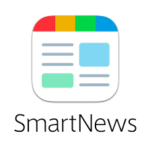Fall News Literacy Professional Development Series
Fall News Literacy Series: Skills students must learn to be reliably informed

The News Literacy Project is holding a series of four free webinars, addressing essential news literacy topics, every Tuesday in October (Oct. 6, 13, 20, and 27) at 5 p.m. ET/2 p.m. PT. We are allotting 60 minutes for each session, plus an optional 30–minute Q&A to ensure we are able to address all questions. Following each webinar, we will share the recording, as well as additional links and free resources via email. Attendees will also receive a certificate of participation for professional development credit.
Register for the series on Zoom at this link.
This series is generously sponsored by SmartNews.
Session Descriptions
Oct. 6: What it means to be ‘news-literate’: Introduction to news literacy education
We’ll provide an overview of the news literacy skills that students must know to be reliably informed, such as recognizing the difference between news and opinion, identifying misinformation, evaluating evidence, using fact-checking and digital verification tools, and discerning various types and forms of bias.
Here’s the video recording of this session:
Oct. 13: Exploring the misinformation landscape
Learn how to teach students to stop using the phrase “fake news” and to identify the many types of misleading, inaccurate and false information that they regularly encounter. We use examples of misinformation to engage students in news literacy and civic learning, and introduce digital verification tools for debunking manipulated and false images. We also explain the standards of quality journalism, such as fairness, balance and context.
Here’s the video recording of the session:
Oct. 20: Teaching digital verification to spark news literacy learning
Dive into the tools and skills needed to verify the authenticity of information and learn to create engaging fact-checking investigations that inspire students to investigate viral content. Topics include using reverse image searches to determine authenticity; researching domain registration to discover a website’s owner; using archivers to explore deleted or changed content; developing keen observation skills to detect false context; and using Google Street View to confirm locations. Access to News Literacy Project resources and classroom-ready examples is included.
Here’s the recording of the session:
Oct. 27: Understanding bias: A nuanced approach to a vital news literacy topic
Bias is one of the most controversial and important subjects in news literacy. People frequently perceive and allege bias in news coverage, but what does this really mean? What makes a piece of news biased, and who decides? What role do our own biases play in our perceptions of bias? In this session, we’ll help you teach this vital, complex topic in ways that empower students to meaningfully evaluate the fairness and impartiality of news coverage.
Here’s the video recording of this session: